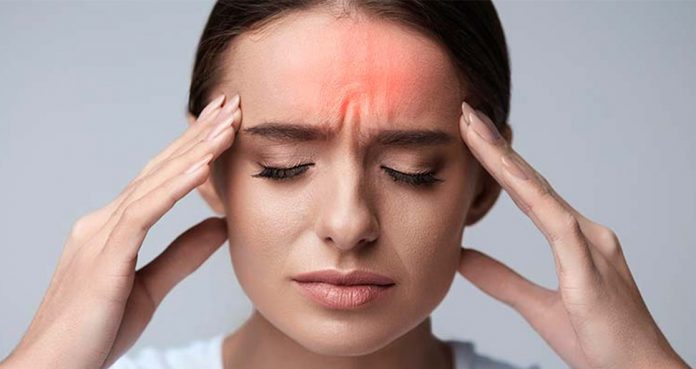A large-scale clinical trial has found that a new migraine drug called ubrogepant has shown promising results, offering a great ray of hope to people who are unable to use current medications.
The drug has been found effective at relieving migraine pain when compared with a placebo. More than 20 percent of participants who took the drug reported an improvement in the pain within a couple of hours of dosage. Also, more than 34 percent of participants reported an improvement in migraine symptoms triggered by light and noise.
Lead study author and director of the Montefiore Headache Center in New York Dr. Richard Lipton said, “Having ubrogepant as a potential new medication for the acute treatment of migraine will provide much-needed innovation for a disease that causes lost time for millions of people.”
The findings of the clinical trial were published Tuesday in the journal JAMA.
Currently, ubrogepant is pending for approval by the U.S. Food and Drug Administration (FDA).
Worldwide, more than 1 billion people suffer from migraines. In the United States, more than 40 million people have migraines. One of the most common symptoms of migraine is an intense headache; others include nausea, vomiting, and sensitivity to light, noise, and smell.
Dr. Lipton said, “Migraine is the second leading cause of disability, and we need new acute treatments that are efficacious, safe, and tolerable.”
Typically, some migraine headaches are treated with OTC medications such as aspirin, acetaminophen, or ibuprofen. If these medications do not work, physicians prescribe specific migraine medications called triptans, which work by contracting the blood vessels around the brain to ease the pain. However, triptans are considered unsafe for patients with a history of stroke and heart disease.
This is where ubrogepant have a role to play. The drug acts on a specific protein known as gene-related peptide (CGRP), which is associated with pain transmission. During a migraine attack, CGRP levels increase. By blocking the secretion of CGRP, the new drug eases the pain and stops the migraine attack. As the drug does not constrict blood vessels, it is a safer option for people with heart conditions.
However, the director of the Jefferson Headache Center at Thomas Jefferson University Dr. Stephen Silberstein said ubrogepant is not effective as triptans because previous studies have shown that the response rates of triptans are higher than ubrogepant. Dr. Silberstein said, “The study clearly shows the drug is effective, but it is an option for patients who can’t tolerate triptans.”























